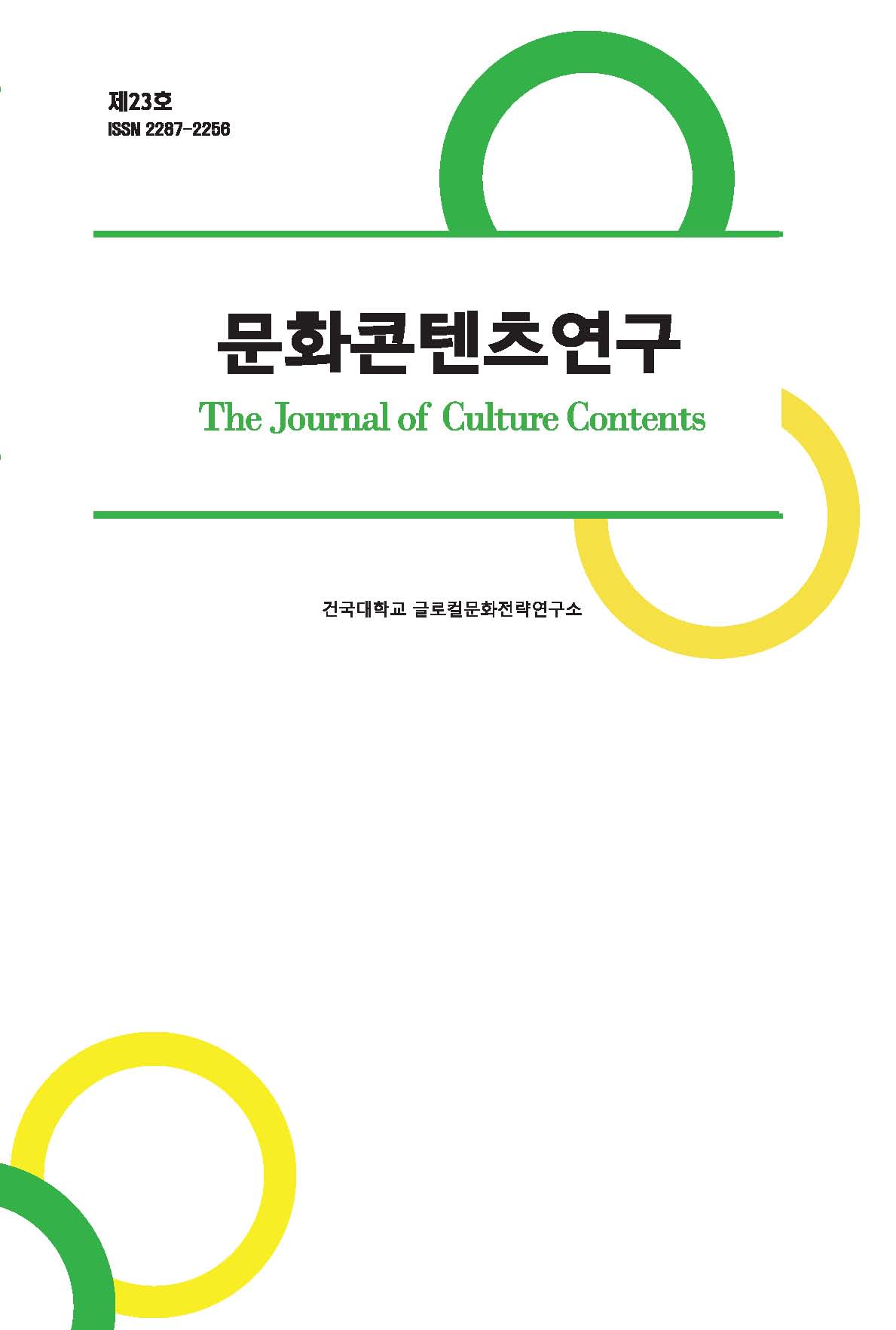Abstract
References
Information
The purpose of this study is to observe the direction of cultural arts pursued by Chinese President Xi Jinping and the government, who are in the third term, through Chinese opera. Since 2012, when Xi Jinping took office as supreme leader, China’s cultural politic pattern of using culture and art as a political means is increasingly strengthened. It also can be found that opera is used as a useful tool for cultural politics. National opera, created by the Communist Party of China in 1945 with the aim of effectively conveying socialist ideology and ideas to the people, has developed with the inherent limitation of political purpose, and is still recognized as playing the same role in Chinese society. This trend is getting stronger under the Xi Jinping administration. Since 2017, the Chinese government has announced that they will support the entire process of creation and performance by selecting national operas with excellent quality and value, and the Chinese government has selected and supported nearly 30 works. This study is focused on the material and characteristics of the selected works on how the Chinese government uses national operas to strengthen the ruling power and political propaganda, and analyzed three of them in terms of content criticism. As a result, it was found that the Xi Jinping administration used opera to promote the realization of a “Xiaokang” society, attempted to change the situation by wrapping the unexpected sudden spread of the COVID-19 virus with people’s unity and sacrifice, and emphasized socialism with Chinese characteristics in the new era. National opera can be assessed as an interesting performing arts content that re-appropriated Western opera. If Chinese opera and cultural arts avoid being excessive political tools and focus on improving artistry, they will be able to contribute more to the development of contemporary East Asian performing arts.
본 연구는 세 번째 임기를 맞이한 시진핑 중국 주석과 정부가 추구하는 문화 예술의 방향성을 중국 가극을 통해서 보고자 하는 데 목적이 있다. 시진핑이 중국 최고지도자에 취임한 2012년 이후, 문화 예술을 정치적 수단으로 활용하는 중국의 문화정치 양상은 갈수록 강화되는 것으로 관찰된다. 이러한 문화정치의 유용한 도구로서 가극이 활용되는 것을 찾아볼 수 있다. 1945년 중국 공산당이 인민들에게 사회주의 이념과 사상을 효과적으로 전달하기 위한 목적으로 창작한 민족가극은 정치적 목적성을 수반했다는 태생적 한계를 가지고 발전해 왔고, 오늘날도 중국 사회에서 같은 역할을 하는 것으로 인식된다. 이 같은 경향은 시진핑 정권에서 더욱 강해지고 있는데 중국 정부는 지난 2017년부터 작품성과 가치가 뛰어난 민족가극을 선정하여 창작과 공연에 이르는 전 과정을 지원한다고 발표하고 현재까지 약 30여 편에 가까운 작품을 선정하여 지원하였다. 본 연구에서는 선정작들을 대상으로 중국 정부가 민족가극을 집권세력 강화와 정치적 선전에 어떻게 이용하는지 작품의 소재와 특성을 중심으로 살펴보고 이중 특기할 만한 작품 세 편을 골라 콘텐츠 비평의 측면에서 분석했다. 그 결과, 시진핑 정부는 가극을 활용해, 목표로 했던 ‘샤오캉’ 사회의 전면적인 실현을 홍보하고 강화하는 것으로 나타났고, 코로나19 바이러스의 확산이라는 돌발변수를 인민의 단결과 희생으로 포장해 국면전환을 시도했으며, 신시대 중국 특색 사회주의를 보다 강조하는 것으로 나타났다. 민족가극은 서양 오페라를 재전유 시킨 흥미로운 공연예술콘텐츠로 평가할 수 있다. 중국 가극과 문화 예술이 지나친 정치도구화를 지양하고 예술성 향상에 치중한다면 동시대 동아시아 공연예술 발전에 보다 기여할 수 있으리라 판단한다.
- 민경찬 외, 『동아시아와 서양음악의 수용』, 음악세계, 2008.
- 손수연·이병민, 「중국 신가극을 통한 동아시아 오페라의 재창조」, 『인문콘텐츠』, 제44권, 인문콘텐츠학회, 2017.
- 손수연, 「동아시아 공연예술콘텐츠로서 일본오페라의 소재적 다양성 연구」, 『인문사회21』, 제11권4호, 인문사회21, 2020. 10.22143/HSS21.11.4.147
- 손수연, 「현대 중국 민족가극을 통해 본 문화 정치적 양상 고찰」, 『문화콘텐츠연구』, 제0권19호, 건국대학교 글로컬문화전략연구소, 2020.
- 왕단, 「중국과 서양의 발성법 비교를 통한 중국발성법 발전방안에 대한 연구 : 주소연의 발성법을 중심으로」, 계명대학교 박사학위 논문, 2023.
- LIU AIZHEN, 「오페라 <백모녀(白毛女)> 연구: ‘희아(喜儿)’의 이미지 변천과 음악적 표현을 중심으로」, 대진대학교 박사학위 논문, 2022.
- 兰爱民, 『《白毛女》延安解放区首演成功背后的思考, 安徽省科学教育研究会安徽省老科技工作者协会』, 2020.
- 刘暄,「当代中国民族歌剧的美学精神」, 『贵州民族研究』, 제6권 2018.
- 徐潜, 「中国歌剧的民族化与国际化趋势」, 『音乐生活』, 제[4권, 2020.
- 李詩原·薺栢平, 『中國近現代音樂史卷-音樂表演藝朮与作曲技法理論』, 人民音樂, 2008.
- 羡涛, 『中国歌剧艺术民族化发展与表演艺术研究』, 中国纺织出版社, 2021.
- 鲁雨奇, 『扎根沃土 走向世界 —论中国歌剧的民族化与国际化趋势』, 大众文艺, 2021.
- 中华人民共和国文化和旅游部, https://zwgk.mct.gov.cn/zfxxgkml/wysy/202012/t20201205_916395.html
- 中华人民共和国中央人民·政府, http://www.gov.cn/xinwen/2015-10/19/content_2950086.htm?gov, 2015. 10. 19.
- 福州日报社数字报, https://m.gmw.cn/baijia/2021-01/19/1302051247.html
- 百度 南充政法, https://baijiahao.baidu.com/s?id=1746883170703766990&wfr=spider&for=pc
- 河北新闻网, https://hebei.hebnews.cn/2022-12/21/content_8919195.htm 2022. 12. 21.
- 中国共产党新闻网, http://cpc.people.com.cn/n1/2021/0421/c64387-32083424.html2021. 04. 21.
- 中国人民政治协商会议全国委员会, http://www.cppcc.gov.cn/zxww/2023/03/15/ARTI1678843239288103.shtml 2023. 03. 15.
- Publisher :Research Institute of Creative Contents
- Publisher(Ko) :글로컬문화전략연구소
- Journal Title :The Journal of Culture Contents
- Journal Title(Ko) :문화콘텐츠연구
- Volume : 27
- Pages :167~194
- DOI :https://doi.org/10.34227/tjocc.2023..27.167



 The Journal of Culture Contents
The Journal of Culture Contents





